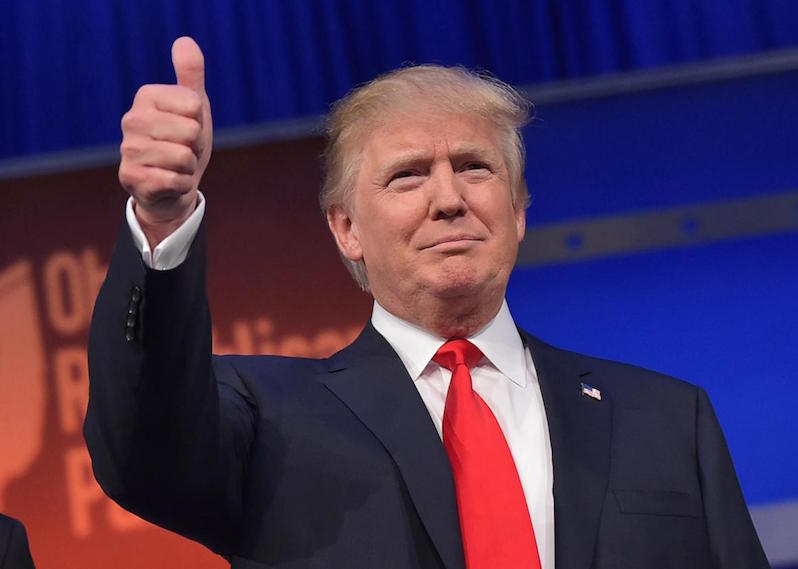Donald Trump’s Scary, 12-Point Legal Agenda
The presumptive Republican nominee is part angry populist, part xenophobic nationalist, part reality-show huckster and part latter-day Benito Mussolini But there are coherent goals in his ideological scramble—including remaking the Supreme Court The presumptive Republican nominee is part angry populist, part xenophobic nationalist, part reality-show huckster and part latter-day Benito Mussolini. Donald Trump has shaken up the American political system with his 2016 presidential run. (Wikipedia Commons / CC BY-SA 4.0)
1
2
Donald Trump has shaken up the American political system with his 2016 presidential run. (Wikipedia Commons / CC BY-SA 4.0)
1
2

Donald Trump has shaken up the American political system with his 2016 presidential run. (Wikipedia Commons / CC BY-SA 4.0)
- He wants to build a “wall” along the southern border and deport some 11 million to 12 million people who have entered the United States without legal permission.
- He wants to end birthright citizenship for children born in the U.S. to two noncitizen parents.
- He wants to expand the use of torture techniques in the war on terror, advocating methods “a hell of a lot worse than waterboarding,” and he wants to send even more detainees to the prison at Guantanamo Bay.
- He would deny visas to all Muslims seeking legal entry into the United States.
- He wants to repeal Obamacare either legislatively or by means of a new Supreme Court ruling that would overturn the court’s landmark 5-to-4 opinion in 2012, upholding the Affordable Care Act’s “individual mandate.”
- He wants to “open up our libel laws” and reverse The New York Times v. Sullivan decision, the unanimous 1964 ruling that provides journalists and private citizens with First Amendment protections against defamation lawsuits brought by government officials and public figures.
- He would defund Planned Parenthood, ban late-term abortions and select a new Supreme Court justice who may vote to overturn Roe v. Wade.
- He would “consider” appointing justices who would overturn Obergefell v. Hodges, last year’s historic 5-to-4 Supreme Court decision on gay marriage.
- He would defend “religious freedom” against anti-Christian secularists.
- He would disband the Environmental Protective Agency and turn regulation of greenhouse gases, clean water and the like back to the states because he believes that climate change is a hoax.
- He would support voter suppression, and he has recently spoken out against same-day voter registration in the mistaken assumption that it would permit noncitizens to cast ballots in federal elections.
- He would support the idea of paying federal bondholders less than 100 cents on the dollar in order to bring down the national debt.
Independent journalism is under threat and overshadowed by heavily funded mainstream media.
You can help level the playing field. Become a member.
Your tax-deductible contribution keeps us digging beneath the headlines to give you thought-provoking, investigative reporting and analysis that unearths what's really happening- without compromise.
Give today to support our courageous, independent journalists.






You need to be a supporter to comment.
There are currently no responses to this article.
Be the first to respond.